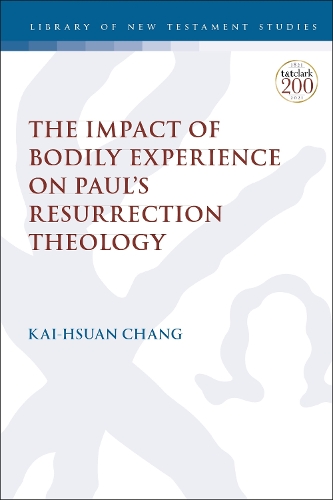
The Impact of Bodily Experience on Pauls Resurrection Theology
(Paperback)
Available Formats
Publishing Details
The Impact of Bodily Experience on Pauls Resurrection Theology
By (Author) Dr. Kai-Hsuan Chang
Bloomsbury Publishing PLC
T.& T.Clark Ltd
20th April 2023
United Kingdom
Classifications
Tertiary Education
Non Fiction
Criticism and exegesis of sacred texts
232.97
Physical Properties
Paperback
176
Width 156mm, Height 234mm
Description
Kai-Hsuan Chang engages with the longstanding scholarly debate concerning the development of Pauls resurrection theology, by investigating the correlation between his bodily experiences and his diverse articulations about resurrection. Drawing on insights from cognitive linguistics, Chang considers Pauls ideas about resurrection as fundamentally grounded in recurrent patterns of bodily experience, arguing that such experience of some religious activities in Pauls timedeath rites, spirit possession, and baptismcontributed to the formation and development of his resurrection theology. Chang demonstrates that developments in Pauls ideas about bodily transformation at resurrection reflected in 1 Corinthians 15 resulted from a change in the experiential patterns on which his new idea is constructed, rather than transformation during heavenly ascent as seen in Jewish traditions of resurrection. He thus applies cognitive linguistic tools to two considerations; first, whether Paul had contextual reasons to generate his innovation in 1 Corinthians 15, and second, whether Pauls innovation recurred or had continual effects in Christian groups. In so doing, Chang shows that Pauls innovation directly addressed a contextual issue of death rites in Corinth and exerted a continuing effect on Pauls later ideas of transformation, spirit possession, and baptism.
Reviews
[O]ffers a complex but fresh approach to analyzing the development of Paul's teaching about bodily resurrection. * The Bible Today *
Author Bio
Kai-Hsuan Chang is assistant professor at China Evangelical Seminary, Taoyuan, Taiwan.
